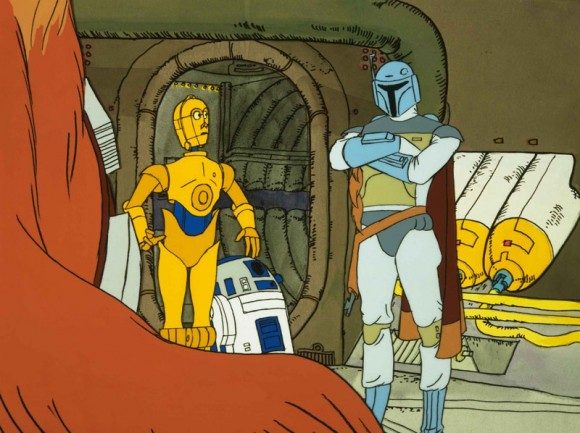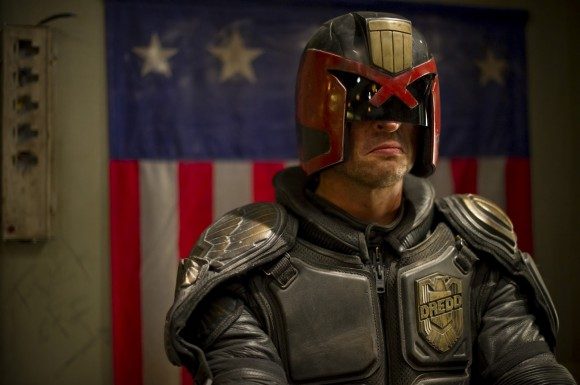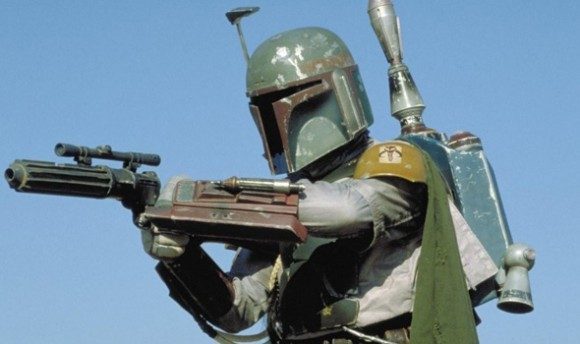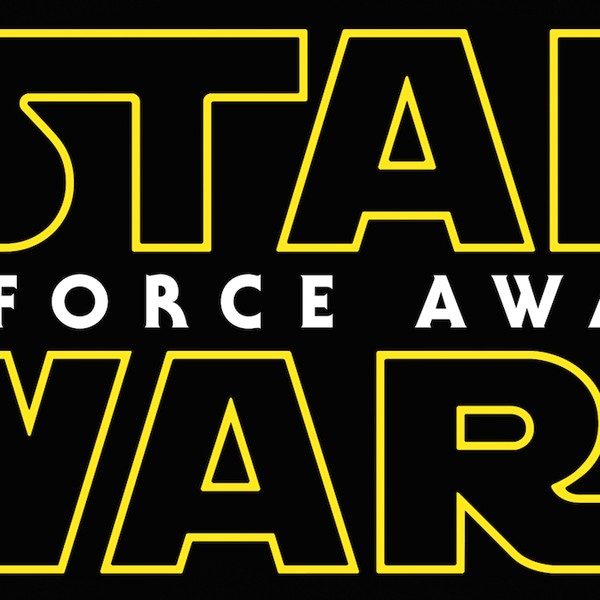Since Marvel hit huge with the Marvel Cinematic Universe and The Avengers, all other modern franchises have deluded themselves with the importance of spin-off films and interconnected universes. DC is desperately trying to merge all of its heroes with Justice League after lagging behind their main competitor for over a decade. Sure, Christopher Nolan gave us the superb Dark Knight Saga, but a single trilogy does not equal the powerhouse of at least two films a year, plus two television shows, four Netflix series, and a features strategy allegedly planned until 2028.
Star Wars and The Amazing Spider-Man are apparently taking a different approach- focusing on the villains. The latter series will give birth to Sinister Six (most of whom have yet to be introduced) and Venom (ditto) – more on that next week. On the Star Wars front, with spin-off films planned for in between every new episode, a Boba Fett flick is seriously being considered. According to one rumor that’s been making the Internet rounds, the producers “want Boba Fett to remain menacing and scary but we have to make him the hero of the film and it is a real challenge.”
Assuming it to be true, that statement raises a very interesting question. No, it’s not, “How can Boba Fett be a hero?” But rather, “Should a Boba Fett movie even be attempted?”


To be fair, this is still one hell of a path for a guy who made his first appearance in the Star Wars Holiday Special. Happy Life Day!
Jimmy Conway isn’t the only one who roots for the bad guys in the movies. Everyone loves villains. Where would our heroes be without them? They get the best lines, best moments, and best personalities. It’s disappointing to think about the decades of ne’er-do-well-centered films we missed out on due to the Hays Code.
Making a villain the protagonist requires a deft touch though. For these movies to succeed, we must identify with the sociopathic or psychopathic tendencies rather than briefly flirt with their malevolence before good ultimately defeats evil.
This spotlight shift is more the purview of R-rated fare. Without having to try as hard to please mass audiences, these films can better tackle controversial and challenging themes while fully indulging these creations and their anti-social behavior. They can delve into the notorious and use their actions to make a point about society, morality, and psychological dysfunctions. Films as spread out as The Godfather, American Psycho, and The Wolf of Wall Street and television shows such as House of Cards and Breaking Bad appreciate the brutality and complexity of their main characters. These pieces of work are greatly respected, but they are definitely adult-audience only.
Of course, bad guy-centric films need not be as intense as the aforementioned examples. 1969’s Butch Cassidy and the Sundance Kid focused on bank robbers whose only redeeming qualities were the charisma of Paul Newman and Robert Redford. This light-hearted crime feature played up the antics of its main characters as a delightful romp. We rooted for them against a law that was simply doing its job. Unlike traditional Western anti-heroes (e.g. Clint Eastwood as The Man With No Name), these characters didn’t use their moral ambiguity to help anyone but themselves. The influence of Butch Cassidy and the Sundance Kid can be seen in every subsequent lovable outlaw movie. (Of special note: 1969 also gave us the original The Italian Job, which similarly provided a quasi-humorous look at robbers.)
But these films had no fantasies of sequels upon sequels, no hundred million dollar budgets to recoup, and (for some of them) the benefit of the more experimental 1960s/1970s studios. Could this tactic work as well in a modern family friendly franchise?
Recently, we’ve had several popular all-audience bad guy fare. Wicked, showing the rise of the Wicked Witch of the West, is well-known among theater fans and non-theater fans alike. 2014’s Maleficent takes the focus off the roofied Aurora and places it on the villain played by Angelina Jolie. However, Maleficent is apparently allowing its lead to remain sleazy and evil while providing enough good people to put an end to her dastardly deeds, seemingly in a Lord of the Rings-style battle.
So where does Boba Fett the Hero fall? The quote from above is not the first time we’ve heard of the potential Boba Fett movie. It’s been proposed since the first time Star Wars spin-off films were rumored. However, the possible existence of a Boba Fett movie is problematic for reasons that could shine poorly on the entire revitalization of the franchise.
The biggest concern is the question, “What Makes (Made) Boba Fett So Beloved?” The short answer is that Boba Fett was another Man With No Name. From his appearances in The Empire Strikes Back and Return of the Jedi, he was just a random bounty hunter, irrelevant to the grand machinations of the universe. But he looked awesome. He had a jet pack that doubled as a rocket launcher, a helmet he never removed, and his own ship that was unlike any other we’d seen before. (“It lands on its back?!?”) But even with this fantastic gear, his power as a character came in his mystery. We knew nothing about him, he barely talked, but he did his job. People might complain about his inglorious death being pushed into the Sarlaac pit now, but I think it contributes to his character. When you’re dealing with the universe’s scum and villainy, you’re probably going to meet a random, meaningless end. He’s the Omar Little of Star Wars.


At least Dredd understood the importance of never taking off the helmet… and it’s probably never getting a sequel.
Giving us even greater background to Boba Fett would continue to destroy his mystery and his reputation. One of the greatest issues with a Boba Fett movie is that it will have to use the horrible origins established by the prequels, where he’s the regularly-aging clone of the guy they cloned to make the clones in The Clone Wars. I consider that misguided fan service one of the biggest missteps in the entire prequel trilogy. Tying Boba into a crucial event in the history of the galaxy and of the Jedi seemed a move of desperation. The film threw in something people liked from the first trilogy (a mea culpa for The Phantom Menace, perhaps?) and severely cheapened the character and everything in his orbit. Boba Fett went from being a loner on the outskirts of the galaxy to being at the nucleus of everything that transpired in the entire universe. To me, that comes across as condescending, a hope that we’ll mindlessly clap because it’s a song we’ve heard before. If they bring him back to cause more trouble for our actual heroes, that’s continuing down this troublesome road.
Making Boba Fett a “hero” furthers damage his legacy because he is not a hero. He partnered with the Empire and Jabba. Even making him a Western-style anti-hero seems like a push. How would the character be served by giving him his own A Fistful of Galactic Credits adventure or by having him decide to be a more moral bounty hunter, at least until he regresses by the time of Empire? He doesn’t ride off into the stars to go on new adventures. His fate is the same regardless, and I doubt a winter tentpole will become Boba Fett and Guildenstern Are Dead. What depth can Boba Fett give to the universe that can’t be provided for with other characters, ones who might have a greater impact on the current story? (Other than readily marketable action figures.)
Nevertheless, Star Wars is not a lost cause for a villain movie…and yes, I am acknowledging that the last time they tried that we got the prequels. Even ignoring the now-defunct extended universe, the Star Wars universe is rich and vast. Original trilogy villains such as Grand Moff Tarkin and Emperor Palpatine had interesting personalities, genuine motivations, and presumably fascinating back-stories. Hopefully, the new villains will follow their examples and not possess the “cool looking but ultimately empty” qualities of Darth Maul and General Grievous. Not to mention, the filmmakers have decades of history to fill in, which can be done through new characters. Moving on is far more essential, and more potentially beneficial than dumping more eggs into the nostalgia basket.
Next time on “Make Way For The Bad Guy”: The Amazing Spider-Man, Sinister Six, and The Self-Destructive Franchise.


